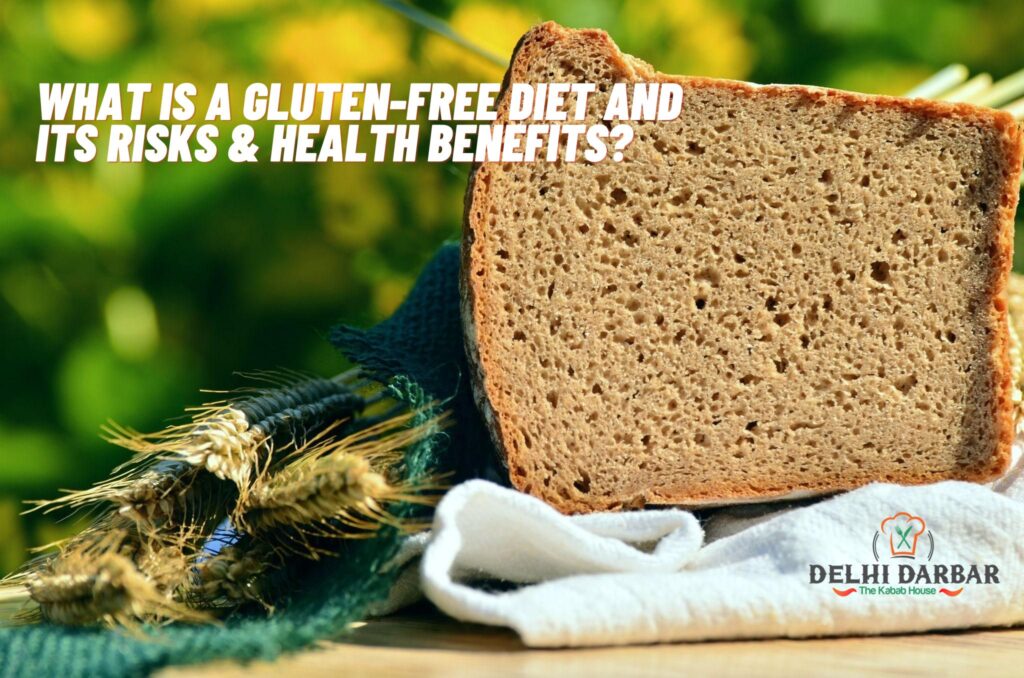Nowadays, gluten-free diets are all the rage. For people with celiac disease, eating gluten-free foods is the only treatment. For others, there may be health benefits to cutting gluten out of their diets. But what does a gluten-free diet entail and are the risks and health benefits worth it? Read on to find out!
What Is A Gluten-Free Diet?
A gluten-free diet does not include any foods that contain gluten. Gluten is a protein found in wheat, rye, and barley. It is also often used as a food additive in the form of flour or starch. For those with celiac disease, consuming gluten can damage the small intestine and prevent the absorption of nutrients.
Many people are allergic to gluten and may experience digestive issues, fatigue, and headaches after consuming it. A gluten-free diet requires careful planning and label reading, as even trace amounts of gluten can be harmful. However, many delicious and nutritious gluten-free foods are available, so following a gluten-free diet does not have to mean sacrificing taste or nutrition.
What Are The Benefits Of A Gluten-Free Diet?
There are various reasons people may choose to follow a gluten-free diet. For some, it’s a necessity due to celiac disease or another gluten sensitivity. Others may believe that eliminating gluten can help with weight loss or other health concerns. Whatever the reason, there are a few potential benefits of going gluten-free.
One benefit of not including foods that contain gluten in your diet is that it forces you to be more aware of what you’re eating. When you can’t eat bread, pasta, or other wheat-based products, you must be more deliberate about the nutrition you’re getting from the foods you eat. This can lead to an overall healthier diet.
Another potential benefit of eliminating gluten from your diet is that it may help tackle digestive issues like bloating and gas. This is especially true if you have celiac disease or gluten sensitivity. By avoiding gluten, you can help reduce your symptoms and feel better overall.
Finally, following the diet can lead to weight loss in some people. This is because many high-carbohydrate foods that contain gluten are also high in calories and fat. You may naturally consume fewer calories and lose weight by eliminating these foods.
What Are The Risks Of A Gluten-Free Diet?
A gluten-free diet can be risky for some people. For example, people who avoid gluten may not get enough fiber, vitamins, and minerals from wheat, rye, and barley. They may also miss out on the health benefits of whole grains. This diet can also be expensive. And it can be hard to stick to a gluten-free diet if you are eating out or traveling. If you think you might have celiac disease or non-celiac gluten sensitivity, talk to your doctor.
Gluten-Free Options
Several gluten-free options are available for those who need to avoid it, including many kinds of fruits and vegetables, meat and fish, and grains like quinoa and rice. With so many delicious and healthy options, following the diet is easier than ever.
Final Word
As mentioned before, avoiding foods containing gluten is vital for those with celiac disease,. However, there are other health benefits to following a gluten-free diet even if you don’t have celiac disease. A gluten-free diet can help improve your digestion, give you more energy, and lose weight. If you’re considering starting a gluten-free diet, speak to your doctor first to ensure it’s right for you, as the risks of following a the diet include missing out on essential nutrients like fiber and B vitamins.

